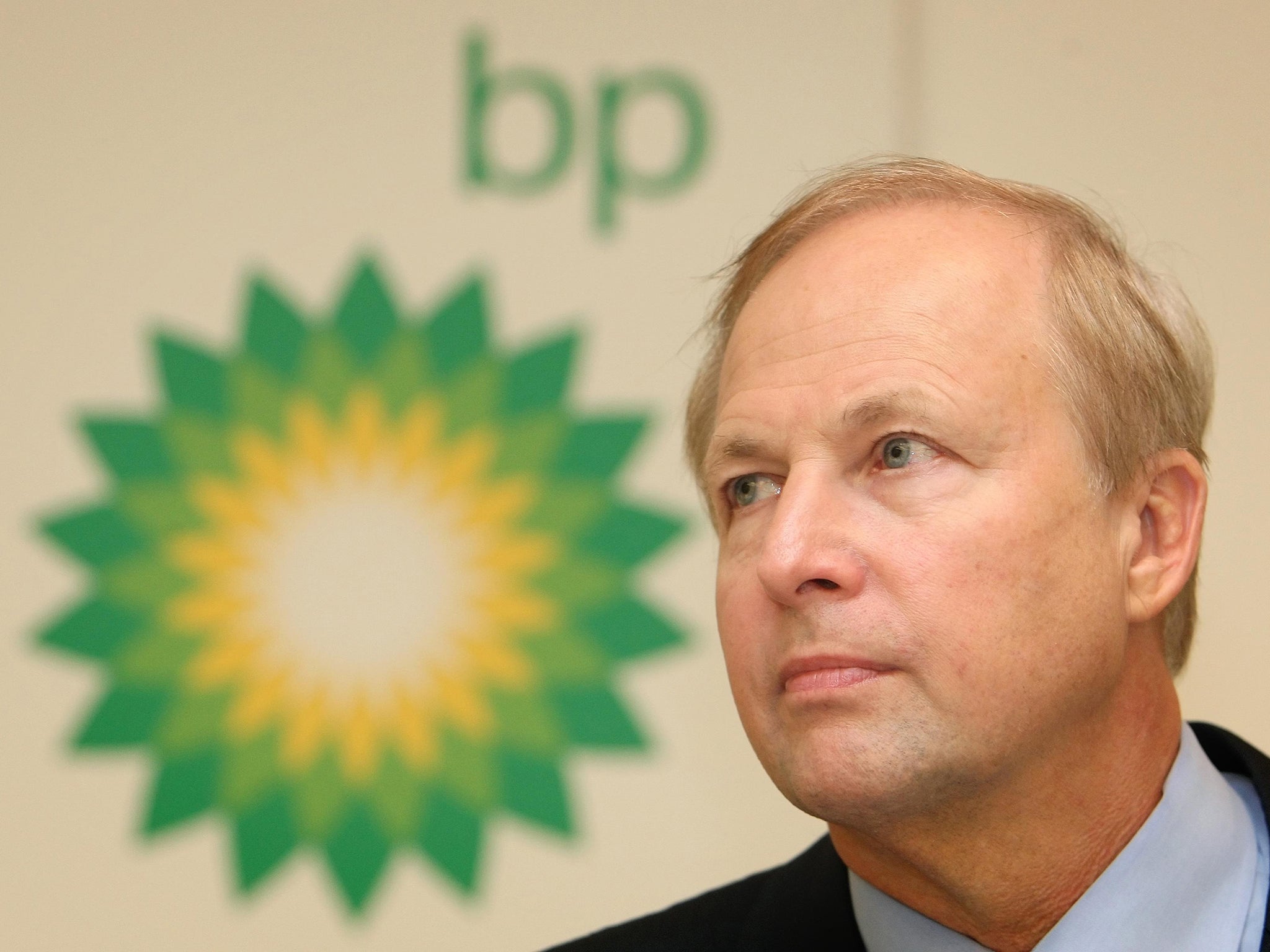BP boss Bob Dudley has found some breathing space thanks to higher oil prices
The fuss over his pay package, which has been reduced to keep investors quiet, is likely to die down as a result

BP nearly tripled its profits in the first three months of the year, which ought to take some of the heat off boss Bob Dudley, who saw his 2016 pay package cut by 40 per cent (to $11.6m, how will he manage?) and his maximum earnings trimmed by nearly $4m (£3.1m) in an attempt to soothe the company’s restive investors.
The reason? A combination of higher oil prices and cost cutting. The former, of course, had absolutely nothing to do with Mr Dudley. But it will still give him some breathing space.
Institutional shareholders tend to pipe down when things are going well, regardless of the reason. Less than 5 per cent of investors opposed a truly absurd pay package put forward by Persimmon Homes last week, because Persimmon things are going swimmingly, even if that is for reasons (such as Britain's housing shortage) that are largely out of the control of its bosses.
Mr Dudley could hope for the same thing to happen if oil prices will just stay high(ish).
The outlook is, well, fuzzy. It always is. Happily for BP, it isn't alone in needing oil prices (which have softened a bit in recent weeks) to stay up.
Governments of oil producing nations in the Middle East have just as much cause as Mr Dudley to cross their fingers and hope that softening doesn’t turn into a longer term decline. They have budget deficits to deal with.
That might discourage Opec from turning the taps on when it comes time to talk production quotas. Again, Opec’s musings are out of Mr Dudley’s control.
The aforementioned costs are a different matter. Every company likes to talk cutting costs. We know what happens any time earnings look shaky (and bonuses come under threat). Let's swing that axe!
Trouble is, BP’s addiction to cost cutting in an earlier era, when it was the City’s shining star, played a role in the Deepwater Horizon disaster in the US, the consequences of which the company is only now emerging from.
The modern BP doesn't scrimp on safety (we are told), and thank goodness for that. But where, then, do you cut? Projects that might secure the company’s future? Staff the company might later find it needs?
Keeping the dividend (and Mr Dudley's pay) up today could come at the expense of tomorrow. It's an unfortunate fact that, when it comes to tomorrow, big investors rarely look beyond the next six months. BP really needs to be thinking about the next six years, as do those (such as pension schemes) relying on its dividends.
The trouble is, current so called “long term incentive plans” that make up the majority of the packages handed to people like Mr Dudley, are too easily paid out, and aren’t really all that long term, notwithstanding the efforts of some institutions (Fidelity is one) to increase the time executives have to wait for their free shares to vest.
This time around, BP’s board bought off dissident investors with what amounted to a gesture. The long term problem of remuneration packages that are too high, that pay out when things go well regardless of the CEO’s contribution, and that sometimes encourage the wrong type of behaviour? It remains.
But, hey, with the oil price high, BP can park that one for another day and watch as the debate shifts elsewhere. It's hardly alone.
Join our commenting forum
Join thought-provoking conversations, follow other Independent readers and see their replies
Comments
Bookmark popover
Removed from bookmarks